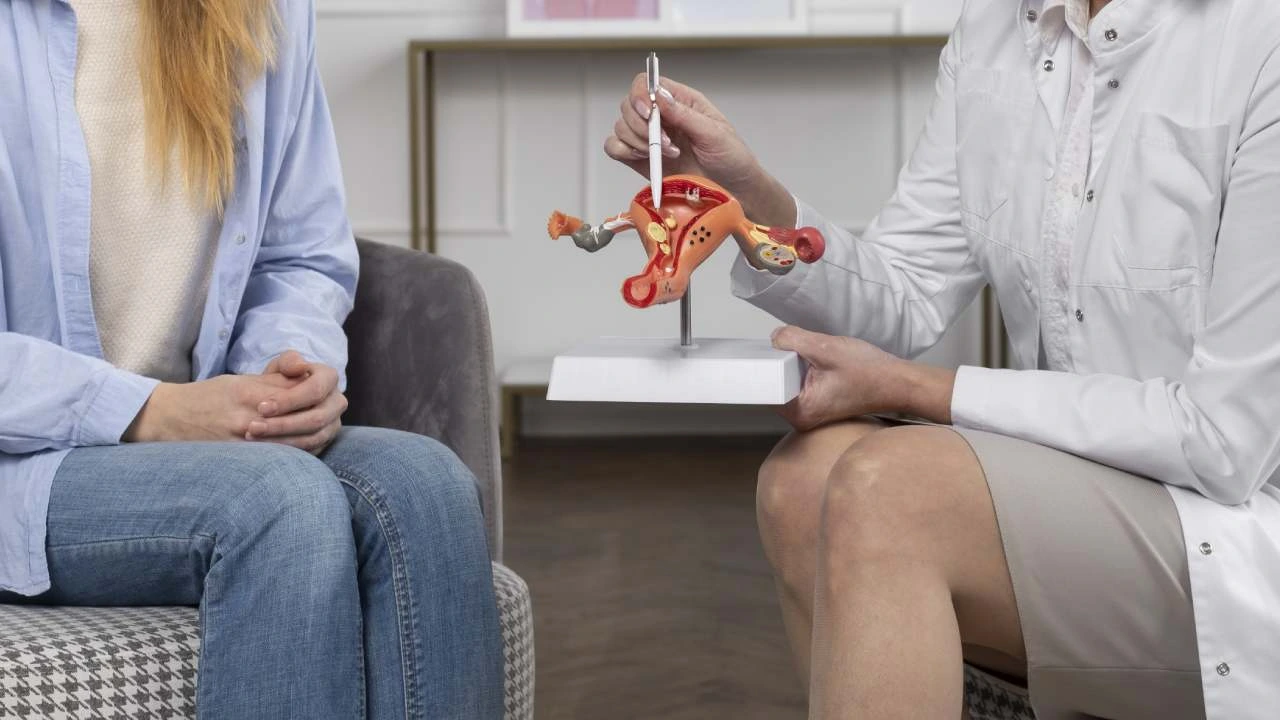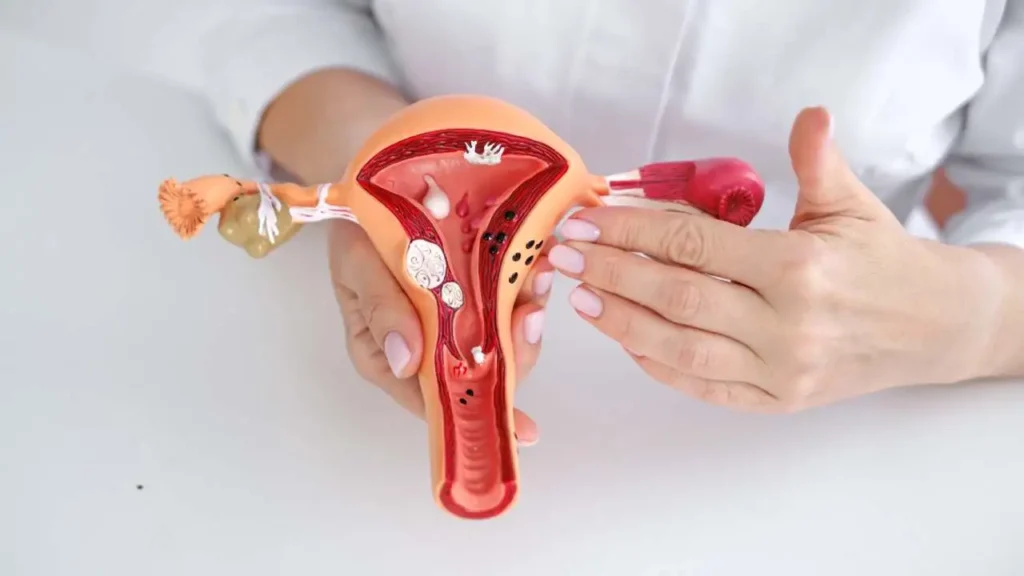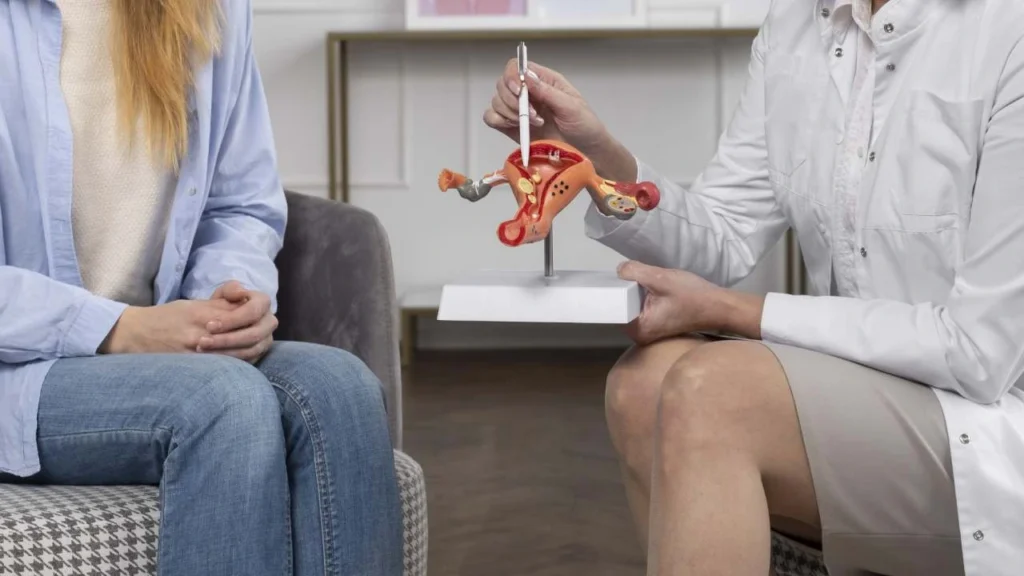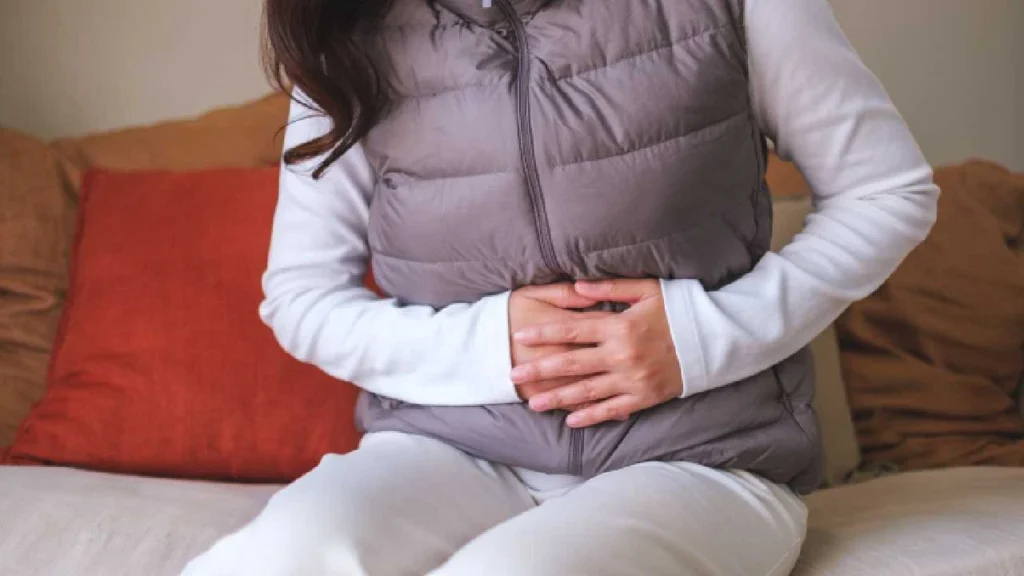What Are Fibroids in the Uterus?
You’ve been dealing with pelvic discomfort, heavy periods, or pressure in your lower abdomen, but you’re not sure why. Could it just be part of your normal cycle, or is something else going on? Fibroids in the uterus are more common than you might think, and for many women, they’re the root cause of symptoms they’ve been ignoring or misattributing for years.
Uterine fibroids, also called leiomyomas or myomas, are noncancerous tumors that grow in or around the uterus. These growths develop from the muscle tissue of the uterus and can range in size from a tiny seed to a large grapefruit. Some women may have just one, while others can have multiple fibroids at once.
Here are the common fibroids in the uterus symptoms to watch out for:
- Heavy or prolonged menstrual bleeding
- Pelvic pain or pressure
- Frequent urination or trouble emptying your bladder
- Constipation or bloating
- Pain during sex
- Lower back or leg pain
If these signs sound familiar, you may be experiencing symptoms of fibroids in the uterus rather than just typical menstrual changes.
How To Know If You Have the Symptoms of Fibroids in the Uterus
It’s easy to confuse fibroid symptoms with other gynecologic issues, especially since many women assume painful or heavy periods are normal. However, certain patterns can suggest that fibroids in the uterus may be the cause. Here’s how to tell the difference:
- Heavy or Long Periods: If your periods last more than 7 days or require you to change pads or tampons every 1 to 2 hours, that’s not typical. Heavy menstrual bleeding is one of the most common signs of fibroids and can lead to fatigue or even anemia.
- Pelvic Pressure or Fullness: You may experience a constant “heaviness” in your lower abdomen, similar to feeling bloated all the time. This pressure isn’t always painful, but it can be a sign of a growing fibroid pressing against nearby organs.
- Frequent Urination: Do you wake up multiple times at night to use the bathroom? Or do you constantly feel like your bladder isn’t emptying fully? A fibroid pressing on your bladder can reduce its capacity, leading to frequent trips to the bathroom.
- Painful Sex: Fibroids that grow near the cervix or within the uterine wall can make intercourse uncomfortable or painful. This symptom often gets overlooked, but it is an important clue that something isn’t right.
- Lower Back or Leg Pain: Large fibroids can press on nerves in the spine or pelvis, triggering pain that radiates down your legs. If your back pain isn’t tied to an injury or posture problem, fibroids may be the reason.
- Constipation or Bloating: A fibroid pressing against the rectum can slow down digestion, causing symptoms like constipation, bloating, or the feeling of incomplete bowel movements.
How To Diagnose Fibroids In the Uterus?
The only way to confirm whether your symptoms are due to fibroids in the uterus is through medical evaluation. At the Fibroid Pain Center, we utilize advanced imaging to provide accurate and personalized diagnoses:
- Pelvic Exam: A routine pelvic exam may reveal an enlarged or irregularly shaped uterus, prompting further evaluation. This is usually the first step.
- Ultrasound: A transvaginal or abdominal ultrasound is the most common and non-invasive imaging test used to detect fibroids. It helps identify the size, location, and number of fibroids.
- MRI: For more detailed information, an MRI can be used to map fibroids and help guide treatment planning, especially if you’re considering uterine fibroid embolization (UFE).
- Hysterosonography or Hysteroscopy: If your doctor suspects fibroids inside the uterine cavity, they may perform a saline ultrasound (hysterosonography) or a hysteroscopy to visualize the inside of your uterus.
Explore Your Uterine Fibroid Treatment Options
Once you’ve confirmed that you have fibroids in the uterus, you don’t have to suffer through the symptoms. There are multiple treatment options based on the size and location of your fibroids, your symptoms, and your future fertility goals.
At Fibroid Pain Center, we specialize in minimally invasive, uterus-sparing procedures like uterine fibroid embolization (UFE). This is a non-surgical, same-day outpatient procedure that blocks blood flow to fibroids, causing them to shrink and reduce in size. Our goal is to help you avoid unnecessary surgery whenever possible.
Don’t Ignore the Fibroids in Uterus Symptoms
If you’ve been silently enduring heavy periods, pelvic pain, or constant bloating, you might be dealing with fibroids in the uterus. These noncancerous growths can significantly disrupt your quality of life, but with the right care, they’re manageable and treatable.
At Fibroid Pain Center, we offer expert diagnosis and minimally invasive treatments to relieve your symptoms and preserve your uterus. Whether you’re looking for answers or are ready to explore treatment options, contact us to schedule a consultation today.
FAQs
Can Fibroids in the Uterus Go Away on Their Own?
Some fibroids shrink naturally, especially after menopause when estrogen levels drop. However, if you’re still menstruating and experiencing symptoms, fibroids are unlikely to go away without treatment.
Are Fibroids in the Uterus Cancerous?
No, fibroids are noncancerous (benign) tumors. While rare, a cancerous tumor called leiomyosarcoma can mimic fibroid symptoms, which is why proper diagnosis is essential.
Can I Get Pregnant If I Have Fibroids?
Yes, many women with fibroids can conceive and have healthy pregnancies. However, some fibroids, depending on their size and location, can interfere with fertility or pregnancy. If you’re trying to conceive, consult a fibroid specialist to discuss your options.
What Causes Fibroids to Grow?
Fibroids are influenced by hormones, especially estrogen and progesterone. They can grow during pregnancy or with hormone therapy and may shrink after menopause.
Do All Fibroids Require Treatment?
Not always. If your fibroids aren’t causing symptoms, you may not need treatment right away. But if you’re noticing pain, heavy periods, or fertility issues, it’s time to explore your options.







